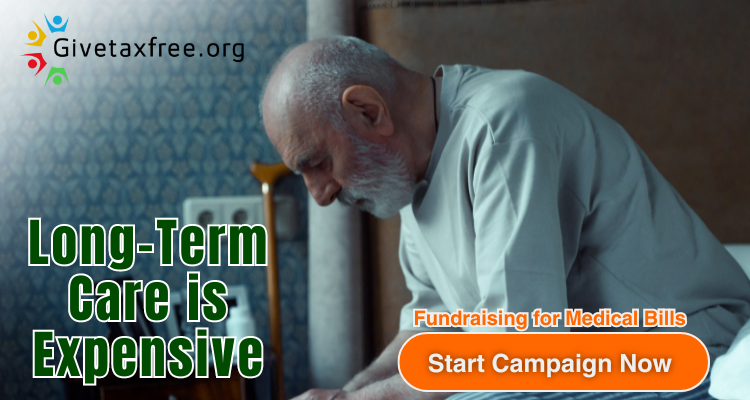ASCO: You’re listening to a podcast from Cancer.Net. This cancer information website is produced by the American Society of Clinical Oncology, known as ASCO, the world’s leading professional organization for doctors who care for people with cancer.
The purpose of this podcast is to educate and to inform. This is not a substitute for professional medical care and is not intended for use in the diagnosis or treatment of individual conditions. Guests on this podcast express their own opinions, experience, and conclusions. The mention of any product, service, organization, activity, or therapy should not be construed as an ASCO endorsement. Cancer research discussed in this podcast is ongoing, so the data described here may change as research progresses.
Caring for a loved one with cancer can be challenging as well as rewarding. But you are not alone. In this series of podcasts, developed in collaboration with LIVESTRONG, Aditi Narayan and Mike Threadgould interview family caregivers, who share their stories and offer advice for others facing similar situations.
In today’s podcast, Scott Joy, a testicular cancer survivor and patient advocate, discusses his experience when his wife Judy was diagnosed with multiple myeloma, including some of the bright spots and challenges, things he wishes he had known at the time, and tips for other caregivers.
Aditi Narayan is a social worker and Director of Programs & Strategy at LIVESTRONG, and Mike Threadgould is Senior Manager of Marketing & Communications at LIVESTRONG. Scott Joy is a LIVESTRONG senior leader and a member of Cyclists Combating Cancer.
ASCO and LIVESTRONG would like to thank Mr. Joy for discussing this topic.
Aditi Narayan: I’m Aditi Narayan.
Mike Threadgould: And I’m Mike Threadgould.
Aditi Narayan: And we’re with the LIVESTRONG Foundation where our mission is to improve the lives of people affected by cancer now. We are joined today by Scott. Scott, thanks so much for being here.
Scott Joy: I’m happy to be here with you.
Aditi Narayan: Thanks. Can you tell us a little bit about who you are and your connection to cancer?
Scott Joy: Yes, I can. My name is Scott Joy, and I’m from the New Hampshire seacoast. I’m a father of four adult children in their 20’s. I’m a business technology professional, a tenor, a recreational cyclist, and a 15-year testicular cancer survivor myself, and a LIVESTRONG volunteer since my diagnosis.
But I’m here to talk about my role as a caregiver for my wife of 26 years, Judy, who was a beautiful woman, intelligent, witty as a can be, a novelist of 2 young adult science fiction novels. And, unfortunately, 10 years after my diagnosis, she was herself diagnosed with multiple myeloma, which is a blood cancer, and only lived with the disease for about 3 months or so. So I’m here to talk about that.
Aditi Narayan: Thank you for sharing.
Mike Threadgould: And so, obviously, here we’re talking about roles as a caregiver. What would be something you would share with somebody else who was facing being a caregiver and the challenges or the opportunities that they would face?
Scott Joy: I think the first thing I would say is to be easy on yourself, that it’s a tough role, and you will make mistakes. And if you can talk them through, mostly with yourself, just be kind on yourself. Do your best. Accept all of the feelings as they come. You’ll have them all. Take help where you can get it. Be sure to take care of yourself, to step back and rest when you need to, and just do what you can.
Aditi Narayan: And would you say that those are things— I mean hindsight is 20-20, right? So are those things that you did yourself? Did you accept the feelings during the process, or was that something you wish you had done after?
Scott Joy: It’s always a mix, right? So there are some things that I— I felt fairly prepared just because at that point, I’d had 10 years of experience myself in the patient role. I had friends from the LIVESTRONG community. I felt I had lots of resources I could turn to, both for information and for emotional support and just for the practical, “what should I do?”
But it’s still hard. Knowing that you can do it and feeling that you can do it are awfully different things. So I did feel somewhat prepared, but I had a lot of learning to do along the way to feel like I’m not doing enough: there’s got to be something more we can do. I’m doing too much: Judy’s now feeling overwhelmed with all of the options I’m trying to provide to her, and she just wants to talk to the doctor, and get into treatment, and not worry about all of the other things I might be able to do to help her. I’m going too far now. So I had a lot to learn.
Aditi Narayan: Yeah. It sounds like it. And so would you say that communication line between you and Judy seemed to be really important in keeping that open?
Scott Joy: It absolutely is important. I’m not going to say I got it right all the time, for sure….













![Early ctDNA Molecular Response Enhanced Through Integrated Analyses of Cell Free DNA and Matched... [Video]](https://cancerrecoverygiving.com/wp-content/uploads/2024/07/mp_350048_0_0jpg.jpg)
![Guiding Light: End Of Life Care For Head and Neck Cancer Patients [Video]](https://cancerrecoverygiving.com/wp-content/uploads/2024/07/mp_350009_0_0jpg.jpg)
![Boosting HPV Vaccination: Expert Tips from the Frontline [Video]](https://cancerrecoverygiving.com/wp-content/uploads/2024/06/mp_348134_0_0jpg.jpg)
![Behind the Breakthroughs | Closing the Gap: Equity in Clinical Trials, Research and Patient Care [Video]](https://cancerrecoverygiving.com/wp-content/uploads/2024/07/mp_349877_0_0jpg.jpg)

